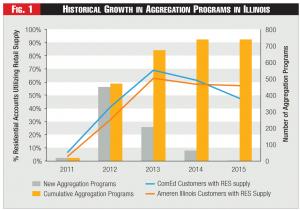An innovative approach to targeted retail aggregation.
Michael Strong is the principle of Strong Legal & Regulatory Solutions, a boutique law firm focusing on energy regulatory matters. Michael represents market participants ranging from retail electric suppliers and developers to end-use customers. He previously spent time at national and international law firms, and was the first in-house general counsel of the Illinois Power Agency.
With over 20 years of experience in energy commodity markets, Mark Pruitt assists organizations with energy planning, project evaluation, procurement processes and contract negotiations. His current work focuses on advising over sixty communities on municipal aggregation (including the City of Chicago), evaluating and negotiating long-term power purchase agreements for renewable energy projects, and advising on energy legislation in Springfield. In his prior role as the first director of the Illinois Power Agency, he secured electricity supply on behalf of approximately 4.7 million residential and small commercial ratepayer accounts serviced by Commonwealth Edison and Ameren Illinois.
In many states - including those without a competitive retail electricity market - there is some form of municipal aggregation. Generally, municipal aggregation refers to a program whereby local governments negotiate energy supply contracts on behalf of their residents. In practice, however, municipal aggregation has vastly different meanings in different locations: in California, municipalities essentially operate as mini-utilities, while restructured states New York, Massachusetts, and Delaware require municipalities to offer guaranteed savings off the utility default rate.
 Figure 1 - Historical Growth in Aggregation Programs in Illinois
Figure 1 - Historical Growth in Aggregation Programs in Illinois
To date, no state has had the same initial success with municipal aggregation as Illinois, where over 650 local governments enrolled approximately seventy percent of residential consumers into municipal aggregation contracts. Though the initial success may have been a product of unique circumstances, the pathway forward in Illinois provides a model to help get programs off the ground in all retail choice states.

